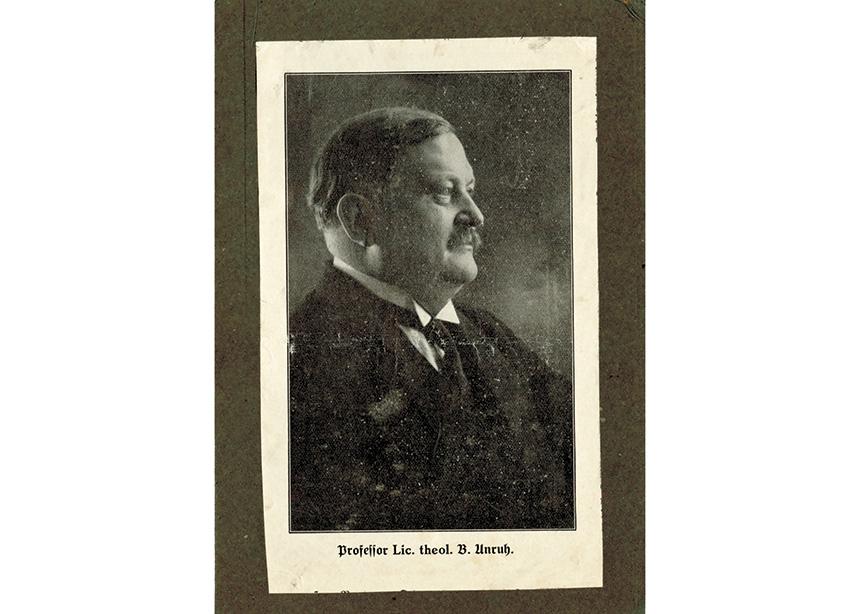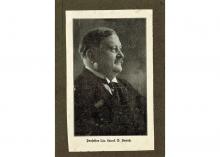Over the past several years, numerous historians have highlighted how different Mennonite communities in Europe before and during the Second World War were entangled with and even actively participated in National Socialism, with some Mennonites helping to perpetrate the Holocaust. Mennonite Central Committee (MCC) intersected with this broader Mennonite history in multiple ways. In 2021, MCC asked 12 historians from Canada, the United States, the Netherlands, Germany, France and Paraguay to help us better understand MCC’s actions during this part of our institutional history, with summaries of their research published by MCC this past fall.
MCC is grateful for the efforts of these 12 historians and others who have conducted extensive research in many archives, including MCC’s records. Thanks to these historians’ writings, MCC has grown in its understanding of the complex ways that MCC’s relief efforts with Mennonite communities intersected with National Socialism.
MCC’s humanitarian work during this period did not always reflect MCC’s core values. MCC worked with pro-Nazi Mennonites like Benjamin Unruh in carrying out humanitarian efforts in the 1930s and 1940s. Some MCC workers in wartime France were slow to take action to protect Jews under threat from pro-Nazi forces. After the war, as part of MCC’s humanitarian efforts to help displaced Mennonites from the Soviet Union and the Danzig area migrate to Canada and South America, MCC workers promoted narratives that presented these Mennonites as separate from and victims of Nazism, when in fact the majority of these Mennonites had been entangled with National Socialism in multiple ways.
MCC grieves and repents of the harm caused by MCC’s actions and inactions during this period. MCC is committed, in collaboration with external consultants, to better telling MCC’s history in its complexity and to taking reparative steps over the coming months and years. These steps will include:
- Providing financial support for ongoing historical research into MCC entanglements with National Socialism as well as other oppressive systems such as racism, colonialism and sexism.
- Reviewing and updating how MCC narrates its post-Second World War refugee resettlement efforts, to incorporate findings from recent research.
- Renewing MCC’s determination to act against antisemitism, as part of MCC’s broader anti-racist commitments, with training for MCC staff to understand, name and confront antisemitism.
MCC today has regularly reviewed processes in place to help ensure that its relief, development and peacebuilding projects and communications reflect MCC’s core values. MCC reviews and assesses all initiatives and partnerships against these core values, seeking to be faithful to its mission of relief, development and peace in the name of Christ.
Rick Cober Bauman is executive director of MCC Canada, and Ann Graber Hershberger is executive director of MCC U.S. To read more about MCC’s findings, visit bit.ly/3zDMn1W.



Comments
It is a curious thing that Canadian Mennonite should front this article with a picture of Benjamin Unruh, and not a picture(s) of the Mennonite Central Committee and Mennonite Church leadership responsible for considerable support for and "entanglement" with National Socialism. MCC leadership responsible for these abhorrent actions remain faceless, nameless, and ultimately "blameless"?
A second curiosity for me is the idea that MCC and Mennonite Church USA/Canada, Christian organizations claiming the highest moral pedestal, could so easily put its morals aside and support and participate in the fascist National Socialist movement. What makes our Christianity so susceptible to white European (German) fascism? And how do we guard against this in our future? How susceptible is our comfortable white Christianity to being coopted by the materialist colonialism of our present day in Canada?
MCC states this is a wakeup call to return to its core values. MCC sets a goal of examining other oppressive systems such as colonialism. That is refreshing to hear. However I don't think that MCC needs to appoint another 12 apostles/historians to examine if Canadian Mennonites have participated in any way, shape or form in the colonial enterprise which is Canada. We don't need 12 historians examining this issue to know that MCC has washed its hands of the Mennonite participation, past and present, in the colonial genocidal efforts to rid Turtle Island of First Nations peoples.
Perhaps a bit of a refresher course of reading in the Good Book about Yahweh and justice is needed. But beyond that what is needed is moral leadership from MC Canada and MCC. They need to lead the people to "giving the land back" and returning to a just relationship with Yahweh.
I was one of those invited to participate in this research, with a focus on Benjamin Unruh, MCC and Nazism. For those interested in reading more deeply, the Mennonite Quarterly Review (April 2022) has published much longer essays from some of the same contributors. For my extended Unruh essay, see https://digitalcollections.tyndale.ca/handle/20.500.12730/1571
Thanks for the link to the full version of the article. It is much appreciated.
Add new comment
Canadian Mennonite invites comments and encourages constructive discussion about our content. Actual full names (first and last) are required. Comments are moderated and may be edited. They will not appear online until approved and will be posted during business hours. Some comments may be reproduced in print.